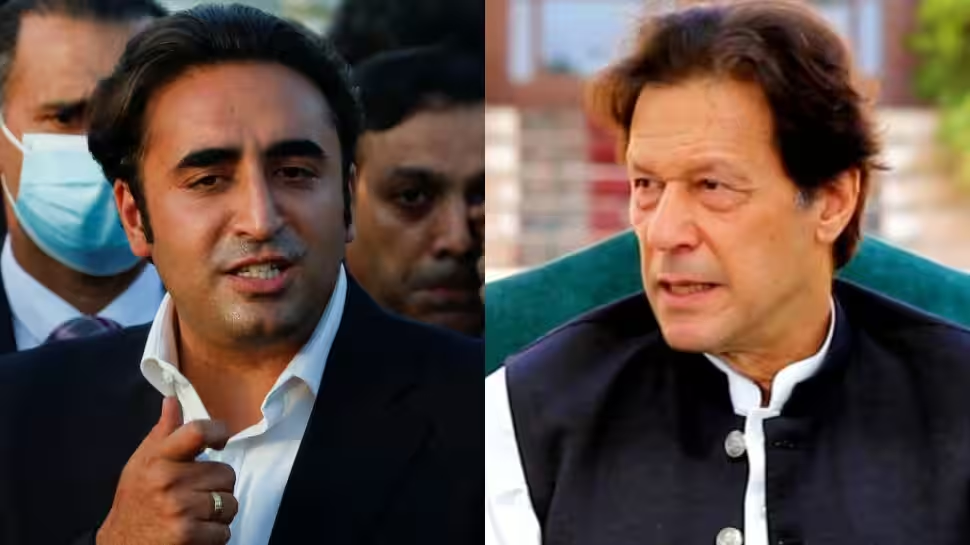Fate Beckons The Shahzada
Bilawal Bhutto (35) may become one of the youngest Prime Ministers of Pakistan

Oxford’s august colleges used to competing against each other in every conceivable sport are now playing out their rivalries on the political fields of Pakistan. Christ Church and Keble are each associated with rival candidates for the top political job when Pakistanis will cast their votes in this coming autumn’s general election.
By common consent the favourite to win is Christ Church graduate Bilawal Bhutto. He currently serves as his country’s 37th foreign minister in a coalition government headed by Pakistan’s Muslim League chairman Shebaz Sharif.
In this year’s forthcoming elections his Pakistan Peoples Party (PPP) is widely expected to emerge with sufficient strength to dominate the next government. At the age of 35 Bilawal Bhutto would then become one of Pakistan’s youngest ever Prime Ministers.
His bitter rival is another Oxford graduate, Imran Khan, a product of Keble College, who served as Pakistani Prime Minister between 2018 and 2022 until he was ousted in a no confidence motion. Supporters of Khan, a national cricketing hero and head of the Tehreek-e-Insaaf party, will fight tooth and nail to bring their leader back to power and resume his stint as prime minister.
Both men draw on different personal strengths. Khan played cricket for Oxford and later captained his country’s national cricket team. His numerous English girlfriends included television producer Jemima Goldsmith whom he married and from whom he was divorced in 2004. The couple have two sons.
The dazzling ancestry of Bilawal Bhutto, often compared to the Kennedys, highlights his heritage as the son of a former Pakistani President and grandson of two previous Pakistani Prime Ministers. His illustrious maternal grandfather Zulfikar Ali Bhutto, a graduate of Christ Church, served as President of Pakistan between 1971 to 1973 and Prime Minister between 1973 and 1977. Following a military coup, he was arrested, tried and hanged in 1979.
Bilawal Bhutto’s mother (Zulfikar Bhutto’s daughter) was Benazir Bhutto who served two terms as Prime Minister of Pakistan. When she first became Prime Minister in 1988, she too was barely 35 years old.
A graduate of Lady Margaret Hall, Oxford, she was assassinated on the streets of Rawalpindi in 2007. Her killer has never been found. Benazir’s husband, Asif Ali Zardari, took over as President of the PPP and later served as President of Pakistan between 2008 and 2013. He is expected to play a key, behind-the-scenes role in paving the way for Bilawal to take over.
Oxford’s men and women’s college teams add to their prestige by playing against each other in a wide variety of sports, including tennis, cricket and fencing.
The best individual players are absorbed upwards into university teams that are then deployed against other universities across the United Kingdom. Teddy Hall ( St Edmund Hall) has the reputation of being Oxford’s sportiest college.
The colleges are also ranked against each other in an academic league known as the Norrington Table that measures the academic performance of each college based on the degree qualifications of each year’s final examinations.
Last year’s Norrington Table was topped by Merton College with Keble (Imran Khan’s college) and Christ Church (Bilawal Bhutto’s college) featuring somewhere in the middle.
Christ Church is both bigger and substantially richer than either Keble or Lady Margaret Hall where Benazir Bhutto used to hold court, famously using a teapot to pour her favourite chilled white wine. All colleges were overshadowed by Christ Church where students from England’s oldest families participated in some of the university’s most boisterous social get-togethers.
Bilawal Bhutto was an avid party goer during his stint as a history undergraduate between 2007 and 2010.
Some of the more exuberant celebrations still feature online pictures of a young Bilawal that barely merit attention in Oxford or London. In deeply conservative Pakistan, however, they will inevitably attract the interest of the country’s Islamic ideologues who set the country’s social and cultural standards.
So the political future of the current foreign minister and would-be Prime Minister, who won universal plaudits for his effortless ‘tehzeeb’ and ‘tameez’, could depend on how those controversial pictures are viewed back home in Pakistan.



